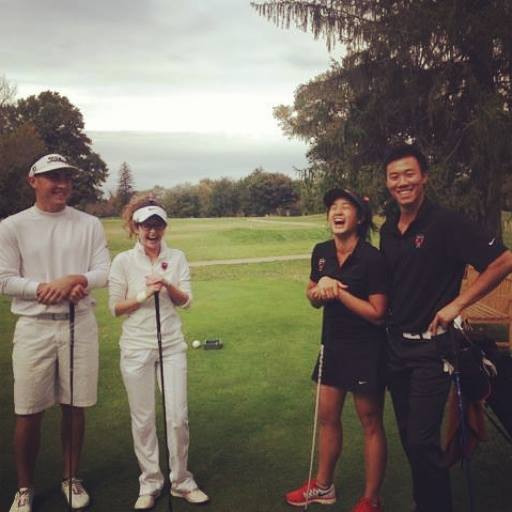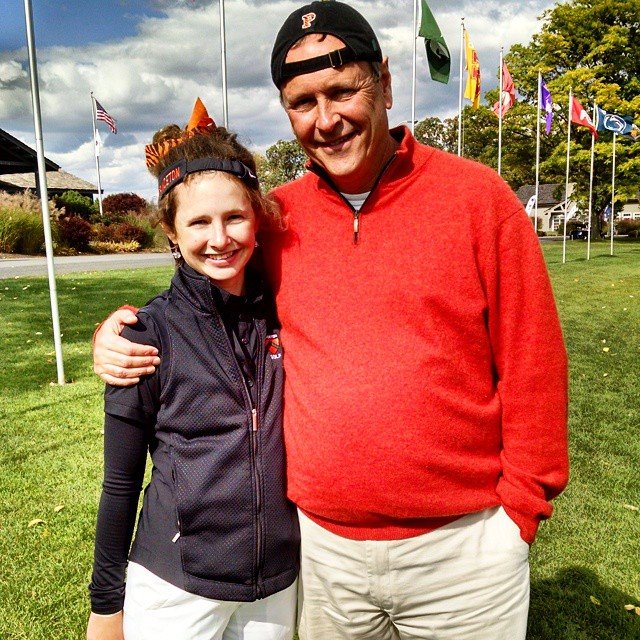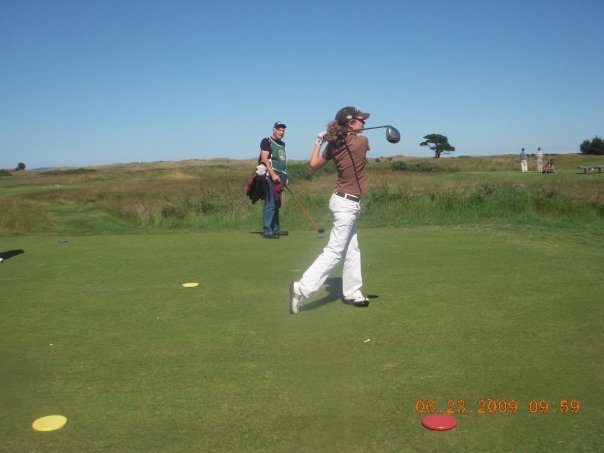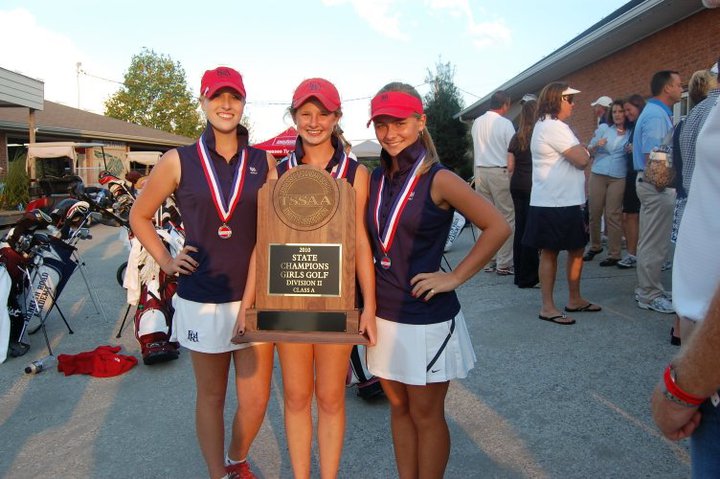
The inherent sexism of golf means I have to pick my battles when on the course
‘The head pro at the school’s club told me that I had to wear “more appropriate clothes for a woman”‘
Growing up, I never understood why golf was so interesting to my father. I would go to the course with him sometimes and love riding the in the cart, washing the golf balls, raking the bunker. It was not until I was eleven that I truly understood what was so interesting about the game. It is the silent competition, the necessary precision of each shot, and the respect for the players.
I say “respect” loosely because, about fifty percent of the time I am at the course, I am met with anything but.

When I first started playing, I got really good really fast. My father, proud of his little girl, would take me out with his friends. He would knowingly sucker them into a bet, persuading them to give me a stroke a hole. While I loved their faces after I smacked a drive down the middle on the first tee, these were my first of many meetings with the inherent sexism of the sport.
As the years progressed, I constantly had to keep proving my worth as a player. I won state, my handicap is in the single digits, I played in college. What more do they want?

I wish I could say that I have only come head to head with sexism a few times, but the list continues for pages and pages.
As a woman, I cannot physically enter the Royal and Ancient, the oldest golf club in the world. I have to prove my handicap is under twenty-five when I play at five-star courses. I have been asked to leave a course because “I was not supposed to be there,” even though I had a tee time and my parents were members of the club. My father and I had to be sponsored by another member in our club’s “Father-Son” championship.
When I got to Princeton, I thought things would be different. For my entire childhood, I dreamed of going to a Division I school. When I did that, I was sure that respect would follow. During my first month on campus, the head pro at the school’s club told me that I had to wear “more appropriate clothes for a woman.” If I wanted to practice I would have to wear clothes that are deemed “appropriate” by group of men, skirts down to the knee and socks above the ankle.
Not to say that I have normalized it, but I have learned to chose my fights on the course. I will continue to abide by the dress code while I rebel and play during the times designated for “men-only.” However, a recent development in my ever-evolving relationship with golf’s sexism is through my post-graduate dating life.

On my various dating profiles, I always mention that I am a golfer. About thirty percent of my matches will message me, asking what my handicap is. They never believe my answer but are intrigued enough to ask me on a golf date. I almost always agree, knowing that I will beat the snot out of them and I will probably win free money from our bet.
Nine times out of ten, the golf dates go as I have anticipated, and, as always, the man-child who has asked me on this date feels emasculated. Not only did I beat them, but also I beat them from the same tees. In college, the usual tournament distance is between 6,000 and 6,400 yards, a distance that is usually dubbed the “Men’s Tees.”

Like a sad puppy, these suitors keep their heads down and remain silent on the ride back to my apartment, never to be heard from again. Some have even encouraged me to find my own way home on the eighteenth green. Their reaction does nothing but push me to be better. There is nothing sweeter than taking money from someone twice my size and weight. While they leave the course confused that a little girl could beat them, I strut back to the car with pride. I love to be the underdog. I love to prove them wrong.
Maybe one day, one of these dates will respect my game, thinking that my abilities really are cool, sexy, and confident. After all, that is the way I see them. I refuse to accept that “this is just the way it is.” I try to get out on the course as much as possible and teach Santa Monica local junior girls. My message will always be the same. Respect the game. Respect the player. In the words of my father, “Don’t ever count me out.”
